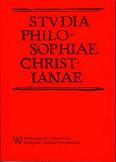In search of understanding: Can science and theology both contribute to a coherent worldview?
In search of understanding: Can science and theology both contribute to a coherent worldview?
Author(s): Grzegorz BugajakSubject(s): Philosophy
Published by: Wydawnictwo Naukowe Uniwersytetu Kardynała Stefana Wyszyńskiego w Warszawie
Keywords: incommensurability; Inter-Theoretic Relations theory; mathematical models in science; postulated ontology; pure knowledge; reference in science; Science-and-Religion; Science-and-Theology; underdetermination; worldview
Summary/Abstract: The paper, drawing on ancient ideals of knowledge: pure versus practical, argues that natural sciences cannot provide a real worldview by themselves. This is because they have features such as ambiguity of the scientific description of reality, meaninglessness of mathematical models employed, and non-referential character of many important scientific notions. This would leave the human desire to understand the world unfulfilled, if other sources of knowledge are excluded. But if they are allowed, then a proper way of reconciling independent or even seemingly divergent views has to be found. Among complementary sources of a worldview, many accept religion, or rather the rational reconstruction of religious beliefs – theology. This paper suggests that some important concepts found in the contemporary philosophy of science – among them underdetermination and incommensurability – point to ways which may allow for the provision of methodologically acceptable constructs, based on the two pillars – science and theology; constructs, which could go beyond vague metaphors towards a consistent worldview.
Journal: Studia Philosophiae Christianae
- Issue Year: 50/2014
- Issue No: 2
- Page Range: 47-67
- Page Count: 21

